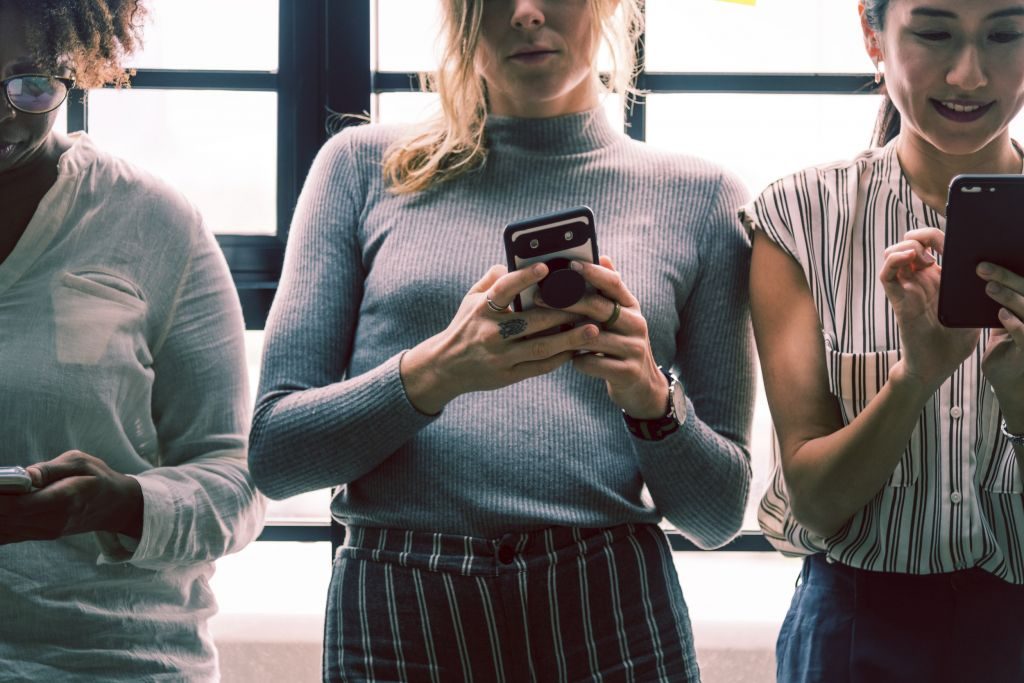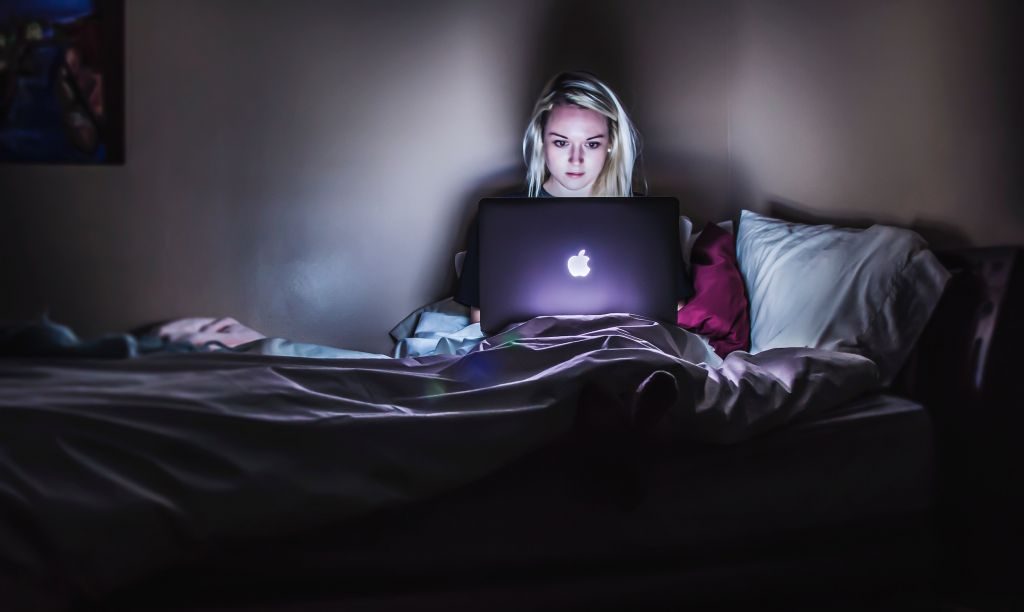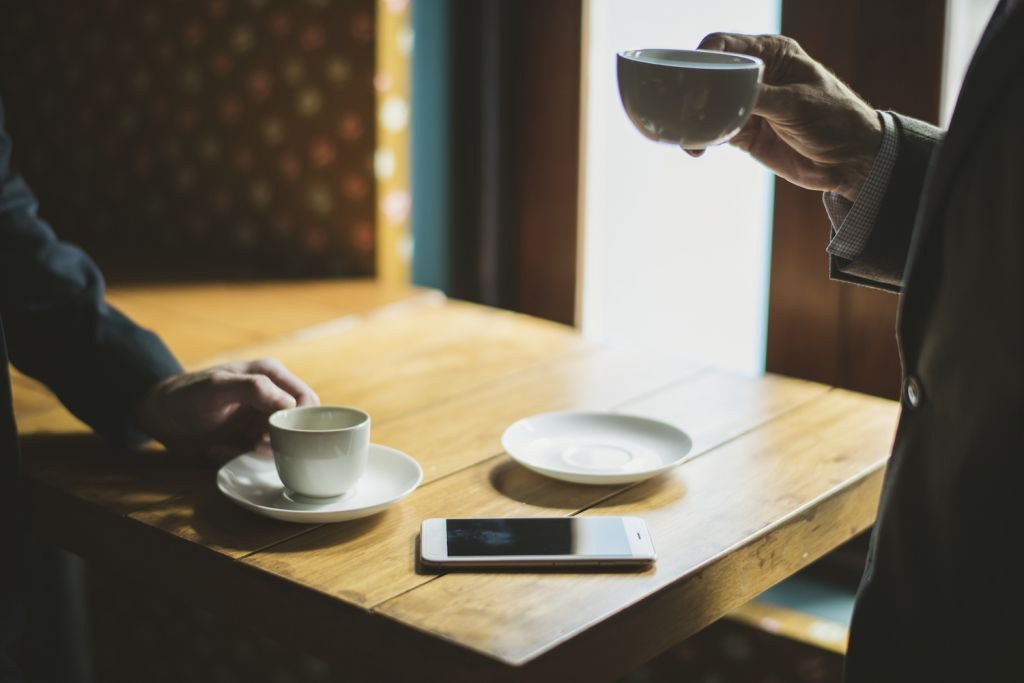
Social media is now a part of nearly everyone’s lives (Facebook alone has 2.27 billion monthly active users), and it’s easy to see why. It’s a great way to pass the time when you’re bored, you can stay up-to-date on the latest headlines, and staying in touch with friends is easy when life keeps you busy.
Despite its popularity, experts now agree that excessive social media use can have profound impacts on your health and well-being. With this in mind, many people resolve to reduce social media time. Whether it’s a full “detox” month or just a long-term reduction, how do you know if you need to go on a social media diet? Here are some signs that you might need to slash your app time.
You Wish You Had More Time in the Day
If you have a lingering to-do list of things that you never seem to be able to get to, reducing your social media use might help. The average North American spends almost 2 hours a day checking social media accounts. (Pssst…that adds up to five years over a lifetime.)
Imagine what you could do with your life if you had an extra hour or two a day to do whatever you wanted? You could hit the gym, clean out your fridge, take a friend out for coffee – the possibilities are endless.
You Don’t Like Your Body
Sure, following celebrities and fashion brands on social media can be a fun escape from our humdrum 9-5 lives, but studies have shown that there is a direct connection between body dissatisfaction and social media usage, especially in young women.
Comparing our bodies to the ones we see we see on social media is harmful for many reasons. Celebrities and models have unlimited access to physical trainers, nutritionists, dermatologists, hairstylists, and makeup artists, not to mention the rampant photo retouching. Comparing ourselves to the people in these photos is like comparing apples to porcupines, and we will never live up to their standards no matter how hard we try.
You Aren’t Sleeping Enough
Has this ever happened to you? You decide to have one last quick look at the Twitter headlines before turning out the light, then cut to two hours later and you’re watching old movie trailers on YouTube.
Social media is designed to keep you coming back for more, so it’s not entirely your fault, but if you’re checking your accounts right before bed, you’re likely eating into that healthy 7-8 hours of sleep that you need.
You Feel Like You Don’t See Friends or Family as Much as You’d Like
Many people’s new year’s resolution is to connect with friends and family more. Social media has a weird way of making us feel like we’re connecting with the people in our lives by liking their photos or wishing them a happy birthday on Facebook.
In reality, those digital gestures are essentially empty because they don’t have the real connection like a like a shared story, a supportive hug, or just a friendly chat about the weather can have. And ironically, the time used for checking social media (remember that 2 hours per day?) takes away time that could be spent actually seeing friends and family in person.
Reading the News Makes You Feel Sad or Stressed
It’s the best time in history to be a human, but we sure wouldn’t know it by reading our news feeds. We are inundated with shocking and upsetting news headlines because they get lots of clicks, and the more something gets clicked on, the more often it will appear in your feed. The sheer volume of this kind of content can make us feel overwhelmed, and it’s not because there is more bad news out there.
You Feel Like Your Friends Are Having More Fun and Success than You Are
Everyone has that friend who seems to have the perfect life. All we see is endless photos of angelic children, dreamy beach vacations, and perfect dinner parties. Makes your life seem pretty messy, right? Well, people rarely show the messy bits of their lives on Instagram. You’re not going to see the 17 previous photos of screaming kids and arguing parents that it took to get that immaculate family photo.
Since you only see these people on social media and hardly ever in real life, your brain fools you into thinking that this is what their lives are like all the time. Believe us, they’re not. They’re complaining about poopy diapers and bad hair days just as much as you are.
You’re Dealing with Anxiety or Depression
If you have been diagnosed with a mental illness like anxiety or depression, social media use can exacerbate your symptoms because of the skewed version of reality that it presents. Researchers have proven that the more time someone spends on social media, the more unhappy they become.

Photo by Victoria Heath on Unsplash
So, What Should You Do About It?
First, Check Your Usage
Before you decide if you need to go on a diet, check your usage. Your phone likely already tracks this in your battery settings with a break down of how much juice you use for each individual app. Also, most iOS devices have a screen time tracker built in, and there are many apps on the market to help track your habits. If you’re well above the average, or even if you’re not but you feel like you could use a change, read on for some tips on how to curb the social habit.
Set Scheduled Time Limits
To get started, it’s best to set limits on screen time before bed. Get an old-fashioned alarm clock, shut your phone off at least an hour before lights out, and leave it in another room. Do something else for that hour instead: some gentle yoga, read a great book, chat with your partner, or pack your lunch for the next day. You’ll be surprised how much better you sleep and how good you feel in the morning.
If you want to go further, decide what a reasonable amount of time is for your life. If you think you have the willpower for the full detox, you can stay off social media completely for a short period of time – try a week or 30 days.
If you think that’s unrealistic or you need to use social media for work, you can set different limits, like No Social Sundays, or stay off social media after dinner. The apps mentioned above have functions that can help you set time limits for specific apps or screen time altogether, and will remind you when your time for the day is up.
Fill Your Phone with Enriching Apps
A great tip to cut down on social media time is to delete the apps from your phone completely and only use them occasionally on a computer. If that’s not possible, at least clear them off your home screen and throw them in an obscure folder on the third page of your apps. That way they’re not staring you in the face as soon as you look at your phone.
Instead, fill your home page with useful and enriching activities:
- Listen to an interesting podcast
- Learn some history
- Brush up your language skills
- Do a crossword
- Watch a TED talk
- Keep your brain in shape
- Meditate
- Write in your gratitude journal
- Plan your meals for the week
- Make a thank-you card…or a million other things.
Read a Newspaper
If you like to stay on top of current events, take a cue from your grandparents and read the paper. Newspapers are designed to give you a broader picture of the news, not just to get as many clicks as possible. With sections like Business, Arts & Life, Sports, Politics, Travel, etc., you can see what’s happening in your city, country, and all over the world in all different areas of interest.
If you only get the news from your Facebook feed, you’re only getting part of the picture. First, your algorithm for Facebook is designed to show you content based on things you’ve already interacted with, so you won’t find new things to learn about by passively scrolling through your feed. Second, your feed has no distinction between reliable and unreliable news sources, so it’s difficult to figure out the quality of the news you’re getting. Most popular and established Canadian newspapers have high standards for research and reporting, so the content you get from your local paper is likely far more informative than a random click on Facebook.
Keep Your Phone Away from Arm’s Length
Yes, smartphones conveniently show the time, but if you are trying to free yourself from the tethers of phone addiction, get simple wristwatch. (No, an Apple Watch doesn’t count!) A watch will keep you from pulling out your phone whenever you need to know the time and then “just quickly check” an app while you’re there. Besides, a nice watch is a great way to show your style.
Another way to keep your phone out of reach is to take it out of your pocket and put it in your bag. Unless you’re an emergency heart surgeon or your partner is about to go into labour, you don’t need your phone at your fingertips all times. If you carry a bag, keep your phone in there until you need it. That way, you’re less likely to look at it every time you put your hands in your pockets or pull it out to sit down.
Unfollow People and Accounts that Make You Feel Bad
You may think the accounts or people you follow are just for fun, but if scrolling Instagram sometimes leaves you feeling empty or sad, it’s time to trim your Following list. If that perfect friend with the perfect life makes you feel like your life is a dumpster fire in comparison, unfollow them. Don’t worry, it doesn’t mean you’re not friends anymore; it just means you’re taking care of yourself.
If you still want to stay connected, give her a call or a text instead to see how she’s doing. You might be surprised to get the real, behind-the-scenes story and not the curated, art-directed story. And celebrities’ accounts? We promise you won’t even miss them. (If your feed is feeling empty after the cleanse, fill it with these ‘good vibes only’ accounts.)
Turn off All Notifications
Social media apps are designed to keep pulling you back in, and having those beeps and buzzes turned on doubles up on the fake sense of urgency to check the accounts. Go ahead and kill those little red dots – you can turn off all notifications in your phone’s settings.
If your FOMO (fear of missing out) is getting too much without them, you can set a reminder notification to check your accounts once a day for an allotted period of time, then put your phone away when the time is up.
We know social media can be fun and informative, and it certainly won’t hurt you in moderation. But if you feel like it’s getting in the way of enjoying your life, we hope these tips can help you go on a diet that actually might stick.


